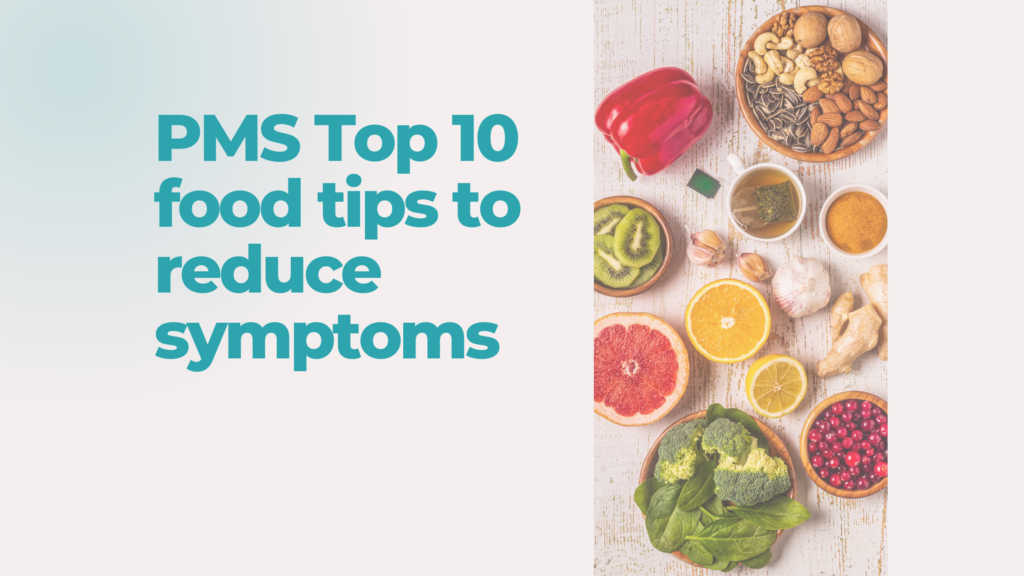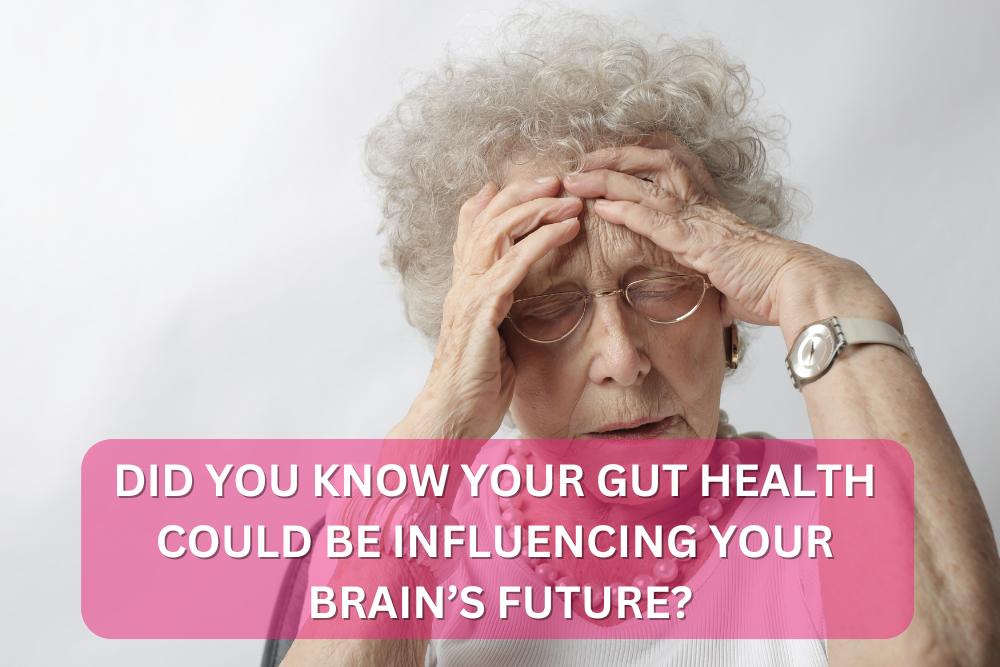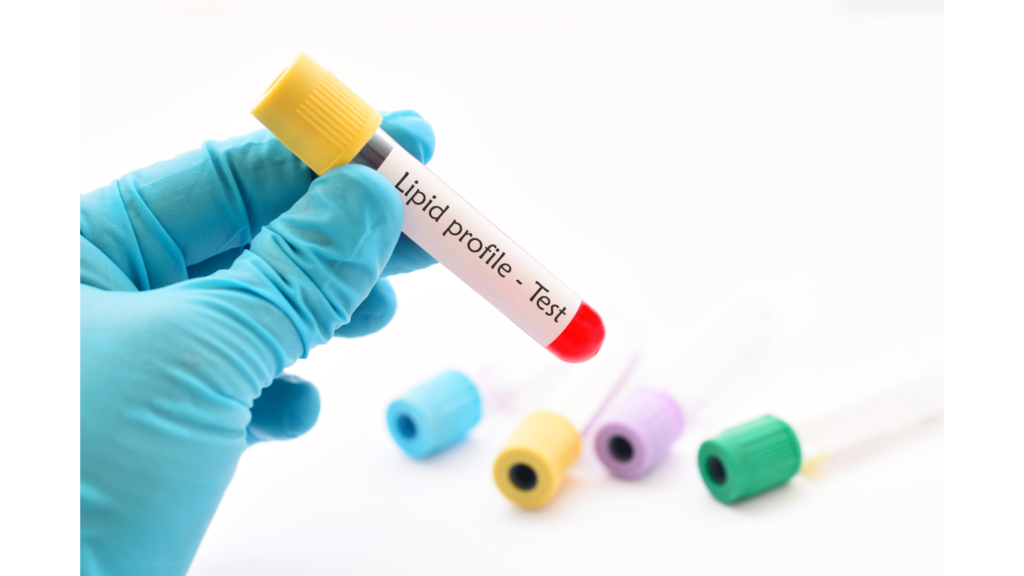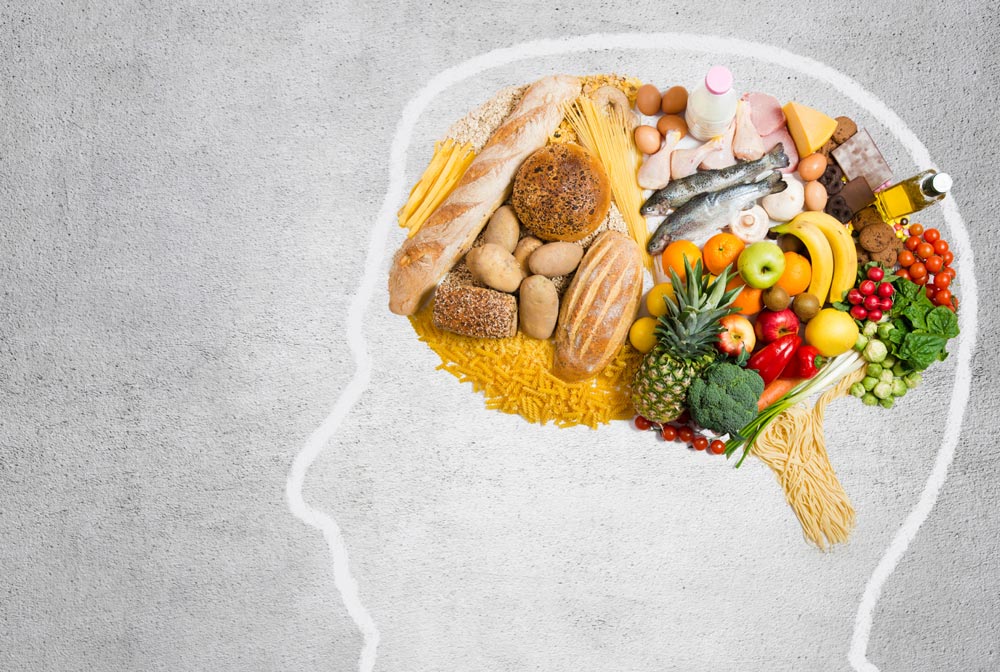PMS Top 10 food tips to reduce symptoms

Up to 75% of women will experience premenstrual syndrome (PMS) at some point in their reproductive years. Symptoms of PMS include mood swings, exhaustion, bloating, and cravings. As a specialised dietitian, I have personally witnessed the transformative power of nutrition in lowering PMS symptoms and enhancing quality of life.
It is commonly believed that avoiding foods and drinks like fat, chocolate, processed sugars, caffeine, fizzy minerals, and alcohol can make symptoms worse for those who consume them. Depending on your symptoms, health, and dietary habits, this may be beneficial. However, did you know that there are a variety of foods that are simple to include in your diet? These foods are not only perfect for people with PMS, but everyone can benefit from them!
How Your Digestive Health May Impact Alzheimer’s Disease Risk

Discover the fascinating link between your gut health and cognitive function from award-winning UK dietitian Gillian Killiner. Drawing from 30 years of clinical experience and groundbreaking research, learn how specific gut bacteria influence brain health and may help prevent Alzheimer’s disease. From beneficial bacterial strains to practical dietary strategies, this evidence-based guide reveals how to support your cognitive wellness through gut health. Featuring real client success stories and actionable steps you can take today. Book your consultation at 121 Dietitian’s Hollywood clinic or online to start your journey toward optimal brain health through personalised nutrition.
Cholesterol: Dispelling the Myth and Unveiling the True Culprits of Poor Heart Health

For decades, cholesterol has been portrayed as the bad guy behind heart disease and poor health. However, it has also been known for many years that cholesterol and especially consuming cholesterol foods are not the true culprit. As a dietitian committed to promoting natural foods and supplements for optimal health, it is essential to explore the link between blood cholesterol, high-sugar diets, and processed seed oils among other contributing factors. This blog hopes to provide some debunking around the cholesterol myth and highlight the true contributors to heart disease and overall well-being. Understanding Cholesterol Cholesterol is a crucial substance that plays a vital role in various bodily functions. While it often gets a bad reputation, it is important to understand that cholesterol is essential for our overall health. Our liver is primarily responsible for producing the cholesterol needed by our body, while a smaller amount is obtained through the foods we eat. One genetic condition, Familial Hypercholesterolaemia (FH), is where there is a fault in one of the genes involved in removing cholesterol from the blood via your liver. It happens when you inherit a ‘faulty’ gene (also known as an ‘alteration’ or ‘mutation’) from one of your parents. Many people go instantly to a no fat diet and this is not the answer. Using a healthy diet with select medication is required still ensuring healthy fats are not completely avoided. The Flawed Cholesterol-Heart Disease Connection Numerous studies have questioned the long-held belief that consuming foods high in cholesterol directly leads to elevated blood cholesterol levels and an increased risk of heart disease. Research is shedding more and more light on this topic, suggesting that the impact of dietary cholesterol on blood cholesterol levels may be minimal when compared to other factors such as overall diet quality and lifestyle choices. This has implications for individuals looking to make informed decisions about their dietary choices and overall cardiovascular health and I am so delighted to see this out-dated belief being challenged. Cholesterol – Focus on the Real Culprits Heart disease and poor health are complex issues cannot be solely due to one factor, such as cholesterol. Rather than singling out cholesterol, it is important to address the role of other factors that are involved. These include the well-known like lack of exercise, unbalanced diet, obesity, stress, lack of sleep, alcohol, smoking, and others not so obvious like trans fats, medications, diabetes, hormone dyregulation, an underactive thyroid, poor kidney function. The two primary factors I wish to expand on in this blog are high-sugar diets and processed seed oils. Both of which are unnecessary but deeply ingrained in our eating habits worldwide and are related to heart disease and poor heart health when consumed in the modern diet. High-Sugar Diets and Heart Disease A high intake of added sugars, particularly refined sugars found in ultra-processed and processed foods and sugary beverages, leads to chronic inflammation and oxidative stress in the body. Dietary sugars mainly refer to fructose and glucose which are naturally present in fruits and some vegetables. The molecular formula you may remember from school biology is C6H12O6 and they are isomers of each other. Fructose and glucose are both considered to be sweet sugars, fructose is however the sweeter of the two but here is the important part – fructose is absorbed differently in the body. Unlike glucose, which is used by cells as an energy source, fructose is metabolized by the liver, where it promotes the synthesis of fat. High Fructose Corn Syrup (HFCS) is a common sweetener and preservative made from the simple sugars fructose and glucose. HCFS-55 and HCFS-42, are the most commonly utilized form that are used in beverages and baked goods. As you can gusess the numbers indicate the amounts so HCFS -55 contains 55% fructose and HCFS-42 and 42% fructose, respectively, with the remainder of the of the syrup being glucose. Since the 1970s, the amount of HFCS has increased in foods firstly in the USA but are now common within the “Western diet” consumed worldwide. The consumption of these types of processed sugars, particularly in sugary soft beverages (SSB), became a major contributor to sugar intake, and the correlation between sugar-sweetened beverages (SSB) and cardiometabolic diseases highlights the potential impact of fructose and glucose on our health. Cholesterol intake or Triglyceride Imbalances? So why worry? Well increased sugar consumption stimulates the liver to convert excess sugar into triglycerides, a type of fat, and it is elevated triglyceride levels in the blood that are strongly associated with an increased risk of heart disease. As highlighted the consumption of processed sugar has reached worrying levels in our modern diet and I see this in my everyday practice. Patients are providing food diaries doing their best to eat what they consider healthy for their heart; all low fat, and in fact they are more inflamed than ever with not paying attention to the processed sugars they are consuming. While natural sugar can provide a quick burst of energy and is fine as part of a balanced intake, excessive intake can have detrimental effects on our health. As mentioned elevated levels of triglycerides in the blood have been identified as a significant risk factor for heart disease. When triglyceride levels rise above normal limits, it can lead to plaque buildup in the arteries, increasing the chances of heart disease and related complications. I explain and teach this to my patients. It is crucial for individuals to monitor and decrease their sugar intake, they are also required to check blood levels and maintain healthy triglyceride levels, this will reduce their risk of heart disease and other inflammatory conditions. Processed Seed Oils and Heart Disease So what about seed oils? The imbalance of omega-6 and omega-3 fatty acids is a common dietary concern. Omega-6 and omega-3 fatty acids are both essential fats that our bodies need for various functions, such as proper brain function, healthy skin, and the regulation of inflammation. However, in today’s Western diet, the ratio
Mental Health -Exploring the Relationship with Antidepressants and Gut Microbiota

Mental Health As a specialist dietitian, I continually raise awareness about the impact and importance of diet on mental health. The recent Panorama programme regarding the difficulty of antidepressant withdrawal has highlighted the vast numbers of dependants, the need for alternatives, and if possible, avoiding them in the first place. This blog hopes to shed light on the important need and connection between diet and mental well-being exploring the intricate relationship between diet, mental health, antidepressants, and gut microbiota. The Significance of Diet in Mental Health The saying “you are what you eat” holds true when it comes to mental health. We have understood for many years there is a gut-brain axis, and know the complex communication network between the gut and the brain plays a vital role in mental well-being. Numerous pathways have been identified through which diet could plausibly affect mental health. These include modulation of pathways involved in inflammation, oxidative stress, epigenetics, mitochondrial dysfunction, the gut microbiota, tryptophan–kynurenine metabolism, the HPA axis, neurogenesis and BDNF (brain-derived neurotrophic factor), epigenetics, and risks with obesity. Mental Health – The Role of Nutrients We know multiple nutrients have been linked to improved mental health. I have spent the past 15 yrs of my 26 yr career, working with my patients to perfect their diets not only to be optimal for their physical wellbeing but mental health too. One group of well-known and researched nutrients are the omega-3s. These fatty acids can be found in fatty fish, walnuts, and flaxseeds but also consumed by the gallon by people in supplement form as our bodies can’t make them. (YouTube Video). Omega 3’s have good and bad press with research finding that high dose supplementation may cause atrial fibrillation and increase risk of bleeding. Consumed in their natural form is the best option as they have a known potential in reducing symptoms of depression and anxiety when consumed as part of a bigger nutrient selection. If needing a supplement using a plant based option is ideal (see below). Another well-known group of nutrients are B vitamins, found in whole grains, leafy greens, and legumes, are important for brain function and mood regulation. I see hundreds of patients take these in high doses either in singles like high dose B12 or high dose B6 believing “more is better” whilst continuing a poor quality diet. This is not recommended and can actually be at best making expensive urine and at worst cause toxic neuropathy, insomnia, headache, palpitations, anxiety and acne…. Understanding Antidepressants Antidepressant medications are commonly prescribed to manage mental health conditions such as depression and anxiety. Common ones include: citalopram (Cipramil) dapoxetine (Priligy) escitalopram (Cipralex) fluoxetine (Prozac or Oxactin) fluvoxamine (Faverin) paroxetine (Seroxat) sertraline (Lustral) vortioxetine (Brintellix) These medications work by increasing neurotransmitters in the brain, such as serotonin and noradrenaline. Whilst the exact mechanism of how these chemicals affect mood is not fully understood, it is believed that they help to regulate emotions and improve overall well-being. In the UK, around one in seven now take an antidepressant. Globally they have made the pharmaceutical industry billions. When the current generation of drugs was launched 35 years ago, they promised a safe and effective treatment, free from the side effects of older medicines. But have they lived up to those claims? While many people say they have benefited from taking antidepressants. Panorama revealed evidence of some companies trying to conceal concerns about their drugs, following patients who have suffered serious side effects as they continue their fight to be heard. The Panorama programme highlighted they are not a standalone solution and should be used in conjunction with other therapeutic approaches. Diet and Antidepressants: Interactions and Considerations It’s important to remember that what we eat can also play a significant role in how our bodies respond to antidepressant medications if they are taken. Certain foods and supplements can interact with these drugs, potentially reducing their effectiveness or causing unwanted side effects. Therefore, it’s essential for individuals taking antidepressants to be mindful of their diet and speak with their healthcare provider about any potential interactions that may occur. One example Grapefruit, is a nutritious and delicious fruit that is commonly consumed as part of a healthy diet. However, many people are unaware that grapefruit and its juice can interact with certain medications, impacting their effectiveness and potentially causing harmful side effects. Mental Health and Gut Microbiota The gut microbiota, the trillions of microorganisms residing in our digestive tract, have gained significant attention for their influence on mental well-being. Emerging research suggests that imbalances in the gut microbiota, known as dysbiosis, may contribute to mental health disorders. A healthy, diverse gut microbiome is associated with improved mood and cognitive function. Research suggests that the neurochemicals produced by the gut microbiome can have a direct impact on mental health and behaviour. One such example is serotonin, which plays a crucial role as a signalling molecule in the gastrointestinal tract. Enterochromaffin (EC) cells utilize serotonin to activate afferent neurons that transmit signals to the central nervous system, making it an important sensory transducer. Research suggests that the gut is responsible for producing a large portion of the body’s serotonin (over 90%) and roughly half of its dopamine (Berger et al., 2009). Studies conducted on germ-free mice have shown that serum levels of serotonin decrease and tryptophan increase without the presence of gut microbes, further highlighting the important role the gut plays in neurotransmitter production.(Wikoff et al, 2009) The Impact of Diet on Gut Microbiota Diet plays a pivotal role in shaping the composition and diversity of our gut microbiota. A diet rich in fibre, found in fruits, vegetables, whole grains, and legumes, provides nourishment for beneficial bacteria in the gut. On the other hand, diets high in processed foods added sugars, and unhealthy fats can negatively impact the gut microbiota. Mental Health – Probiotics Probiotics, beneficial live bacteria and yeasts, have shown promise in promoting mental well-being. Specific strains of probiotics, such as Lactobacillus and Bifidobacterium, have